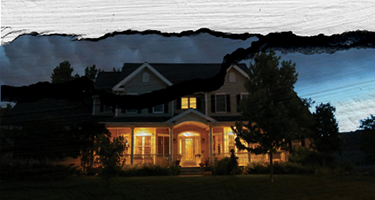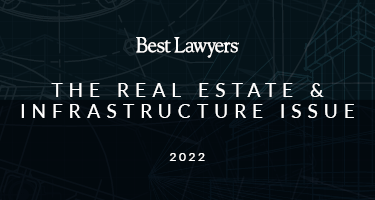When the state’s prior rent regulation laws were overhauled back in June of this year, they were replaced by the Housing Stability and Tenant Protection Act of 2019 (HSTPA), whose purpose was to extensively strengthen tenants’ statutory rights in combating their financially superior landlords. To meet this objective, the HSTPA made sweeping reforms to the rental overcharge laws by extending the statute of limitations on overcharge claims from four to six years, and increasing the treble damages period from two to six years. However, the most significant change to overcharge laws made under the HSTPA was opening examination of the entire rental history of apartments, from the beginning of time, to facilitate investigation on tenants’ overcharge claims, and in determining the legal regulated rent.
Now, where a tenant can point to any improper increases in the rental history (i.e., an incorrect calculation of NYC Rental Guidelines Board increases for one-year and two-year leases, or fraudulently inflated improvements upon vacancy to meet the statutory deregulation threshold), a landlord faces massive financial liability with statutorily mandated trebled damages, along with attorney fees, costs and interest. These progressive changes have chilled the purchase and sale of rent-regulated buildings given the vast unknown universe of potential overcharge liability, while exposing current landlords to colossal overcharge penalties, particularly in large rent-regulated building complexes.
Recent Case Law Interpreting HSTPA Overcharge Claims
In Dugan v. London Terrace Gardens, L.P., 2019 NY Slip Op 06578 (1st Dept. 2019), which was recently decided by the Appellate Division, First Department in September 2019, a group of tenants brought a class action litigation against the landlord of a 10-building complex comprised of roughly 1,000 apartments in Manhattan, challenging the deregulation of hundreds of the complex’s apartments.
Facts. The London Terrace complex was originally constructed in 1931, and was thus subject to rent control, which generally applies to buildings built prior to Feb. 1, 1974, where the tenant took occupancy before July 1, 1971. See NYS Division of Housing and Community Renewal Office of Rent Administration, Fact Sheet, Rent Stabilization and Rent Control. Under the 1974 Emergency Tenant Protection Act, upon vacancy, the rent controlled London Terrace apartments became subject to rent stabilization. Therefore, since 1974, the London Terrace apartments constituted a blend of rent stabilized and rent controlled units. However, in 1993, the landlord began deregulating apartments in the London Terrace complex pursuant to the Rent Regulation Reform Act of 1993, where the rents or the tenants’ incomes exceeded the statutory thresholds allowable for deregulation.
Subsequently, in 2009, the landlord’s deregulation plan was shattered by the landmark decision by the Court of Appeals in Roberts v. Tishman Speyer Props., L.P., 13 N.Y.3d 270 (2009), holding that rent-regulated units could not be deregulated where the building owner received tax benefits for building rehabilitations under New York City’s J-51 tax abatement and exemption program. Further, the Roberts court ruled that apartments in buildings receiving J-51 benefits needed to be registered with the State Division of Housing and Community Renewal (DHCR), and were covered by rent stabilization for, at the very least, during the period that the owner continued to receive these tax-exempt benefits.
On July 1, 2003, the London Terrace had already deregulated close to 100 apartments within the complex when it began receiving J-51 benefits in connection with qualifying improvements. Despite the receipt of such benefits, the owner failed to revert the myriad units that it had deregulated back to rent-regulated status, and in fact, continued to deregulate units during the period that the J-51 benefits were still being conferred, did not register the units with DHCR, and failed to adhere to the rent laws in calculating the legal rents for the units.
Shortly after Roberts came down, a group of London Terrace tenants consolidated their cases into a certified class action lawsuit against the landlord seeking, inter alia, a declaration that their units were subject to rent regulation, and money damages for rental overcharges. See also Maddicks v. Big City Properties, 2019 NY Slip Op 07519 (2019) (holding that tenants’ group suit seeking damages for illegal rent overcharges against landlord may be asserted as class action). In defense, the landlord maintained that Roberts could not be applied retroactively to apartments that it deregulated pre-Roberts because it would offend notions of due process, as it in good faith relied on the interpretation of the relevant prior statutes permitting deregulation.
Holding. The Dugan court upheld the lower court’s decision finding that Roberts is to be applied retroactively in rental overcharge cases in accordance with Gersten v. 56 7th Ave., 88 A.D.3d 189 (1st Dept. 2011), and its progeny, because Roberts simply interpreted a statute that had been in effect for a number of years, and did not establish a new principle of law. Since Gersten, the First Department has categorically rejected due process challenges to the retroactivity of Roberts. See Gurnee v. Aetna Life & Cas. Co., 55 N.Y.2d 184, 192 (1982), cert. denied 459 U.S. 837 (1982) (where Court of Appeals retroactively applied a judicial decision rejecting the Insurance Department’s interpretation of the statute, ruling that a judicial decision construing the words of a statute … does not constitute the creation of a new legal principle); see also Barklee Realty Co. v. Pataki, 309 A.D.2d 310, 311 (1st Dept. 2003) (internal quotation marks omitted), appeal dismissed 1 N.Y.3d 622 (2004), lv. denied 2 N.Y.3d 707 (2004); Matter of St. Vincent’s Hosp. & Med. Ctr. of N.Y. v. New York State Div. of Hous. & Community Renewal, 109 A.D.2d 711, 712 (1st Dept. 1985), aff’d 66 N.Y.2d 959 (1985); Matter of Kass v. Club Mart of Am., 160 A.D.2d 1148 (3d Dept. 1990); Jonathan Woodner Co. v. Eimicke, 160 A.D.2d 907 (2d Dept. 1990).
Under the prior law, the First Department frequently limited the review of the rental history to the four-year period preceding the filing of the overcharge complaint, while seldom permitting additional information that was necessary in deciding overcharge cases. Grimm v. New York State Division of Housing and Community Renewal, 15 N.Y.3d 358, 912 N.Y.S.2d 491 (2010); see also Raden v. W 7879, 164 A.D.3d 440 (1st Dept. 2018), lv. granted — N.Y.3d — (2018); Matter of Regina Metro. Co. v. New York State Div. of Hous. & Community Renewal, 164 A.D.3d 420, 424 (1st Dept. 2018), appeal dismissed 32 N.Y.3d 1085 (2018), lv. granted — N.Y.3d — (2019). Dugan resolved this split, ruling that the HSTPA “now explicitly provides that a court ‘shall consider all available rent history which is reasonably necessary’ to investigate overcharges and determine the legal regulated rent.” RSL §26-516[a] and [h]. In so ruling, the prior four-year lookback period was eviscerated and replaced with an ad infinitum lookback. Specifically, the Dugan court highlighted the following comprehensive set of collective records that may be examined in determining legal rents and overcharges:
(i) rent registration and other records filed with DHCR or other government agencies, regardless of the date to which the information refers; (ii) orders issued by government agencies; (iii) records maintained by the owner or tenants; and (iv) public records kept in the regular course of business by any government agency. (emphasis added).
Accordingly, the Dugan court remanded the matter back to the lower court for purposes of determining the legal regulated apartment rents and the methodology for calculating the statutory damages from six years (CPLR 213-a) prior to the commencement of the suit.
Impact. Pursuant to Dugan, there is no limit on the examination of rent history to determine the legality of a rental amount charged or to prove that a registered rent is reliable under the HSTPA. RSL §26-516[h][i]. Tenants are entitled to review DHCR rent registrations going back to 1984, as far back as DHCR maintains such registrations, along with all other available historical rent records without limitation. Moreover, any unexplained increases in the rent may render the registration unreliable. This means that even in instances where the landlord may have made the necessary improvements to hurdle, for example, the vacancy deregulation threshold under the prior laws, if the landlord is unable to produce the records substantiating those improvements, the rent will likely be deemed unreliable, exposing landlords to considerable statutory damages. See also 161 Realty Assoc., L.P. v. Tejada, 2019 NY Slip Op 51864(U) (App. Term 1st Dept. 2019) (holding that apartments properly deregulated prior to HSTPA may not be subject to re-regulation). Unfortunately, landlords that have actually properly increased their rents, but who did not maintain fastidious records regarding those increases, can be severely punished with giant penalties under the HSTPA.
Conclusion
As transactional counsel for an owner buying a rent-regulated building, the due diligence concerning the propriety of the historical legally regulated rents is of paramount importance. Wherever there are unexplained rental increases in the rental history, all of the records to substantiate the increases must be obtained prior to closing on any rent-regulated building in order to foreclose against substantial future overcharge claims. Conversely, if there are missing or incomplete records in the rent history, the riskier the asset becomes. Invariably, the level of uncertainty for owners surrounding potential overcharge liability and the herculean level of due diligence now required, has frozen the rent-regulated housing sales market.
For current owners of rent-regulated buildings, a due diligence review of the rental history on all registered apartments should be undertaken immediately, and all records to confirm increases meticulously culled and maintained for so long as the owner owns the building. Owners that are not in possession of the documentation to demonstrate the propriety of an increase in the registration over the course of the last 35 years can only pray that the tenant does not assert a claim for overcharge.
Due to the wide expansion of the overcharge laws, tenant counterclaims asserting rental overcharge in landlord-tenant summary eviction proceedings have predictably proliferated. As a result, possibly out of fear over overcharge exposure, there has been a precipitous decline in both nonpayment and holdover eviction cases initiated by landlords in the short time following passage of the HSTPA. Josh Barbanel, “New York Evictions Are Plunging Under New Rent Control Law,” Wall Street Journal (Nov. 26, 2019). According to tenants, this demonstrates that the HSTPA is meeting its intended purpose of reducing landlord cases initiated against tenants to harass them and strong-arm buyouts. Lawyers representing tenants in any case against their landlords should first obtain the entire 35-year DHCR rental history for the subject unit, and perform a detailed analysis of all rent history records to test each single annually registered rent for reliability. If there are unexplained increases anywhere in the rental chain, tenants’ counsel will have no alternative, but to assert rent overcharge.
In sum, the HSTPA’s radical rental overcharge reforms have fundamentally altered not only the practice of real estate law going forward, but the real estate market, as well.
Adam Leitman Bailey, P.C.
























